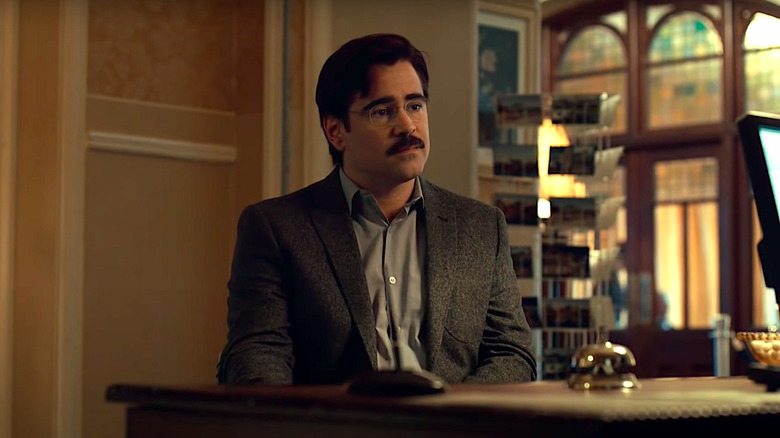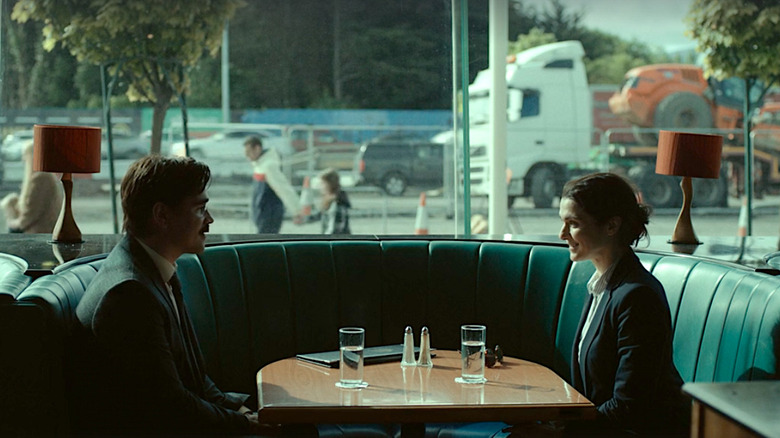A Series Of Intimate Questions Led Yorgos Lanthimos To Create The Lobster
When I saw "The Lobster" in 2015, not a single person in the theater laughed throughout the entire film except for my husband and me. It seems we were the only ones who had gotten the memo that director Yorgos Lanthimos' latest movie was, in fact, a comedy to be laughed at. To be fair, "The Lobster" is very dark, and its humor may not resonate with every person who sits down to watch it. The movie tells the story of David (Colin Farrell) who ends up at a hotel for single people after his wife leaves him. At the hotel, David must find a new partner in 45 days, otherwise he will be turned into an animal of his choosing. David would like to be a lobster, though his brother, who visited the retreat not long ago and failed to find a new mate in time, has been turned into a dog that now accompanies David wherever he goes.
The film is a darkly comic love story that finds its characters basing their potential relationships on superficial things they feel they have in common with one another. At one point, David fakes being an emotionally void individual in order to try and strike up a relationship with a woman who has no sympathy for anyone or anything (she ends up killing David's brother in order to test him). On the surface, the film can seem morbidly comic, and yet like most of Lanthimos' films (the director is perhaps most well known for the equally darkly comic film "The Favourite") its relatability lies in its peculiarities, and in the case of "The Lobster," these particularities are meant to ask big questions about love and what it means to be in a relationship.
Considering the romantic life of the lobster
When David checks in to the hotel at the beginning of "The Lobster," he's asked questions that range from the fairly practical ("Are you allergic to any foods?") to the personal ("Sexual preference?"). The questions are meant to help integrate him into daily hotel life. However, they are not nearly as complex as the questions Lanthimos was thinking about when he wrote "The Lobster" with Efthymis Filippou. In an interview with the Washington Post, Lanthimos talked about where the idea for the film came from, explaining, "We wanted to do something about romantic relationships and how single people are treated within society. The pressure that is on them in order to be with someone and ... the pressure that they put on themselves to be with someone."
This exploration of romantic relationships is meant to highlight a fairly universal experience. "All of us have been through relationships; there have been periods of time when we've been single. It's something that everyone experiences," said Lanthimos. The film's goal was to take this ubiquitous experience and ask difficult questions about it. Lanthimos told the Washington Post, "It's a matter of making that observation [about romantic relationships] and then start to ask questions about it: Why is it like that? And why do we feel that? And why are we organized this way? Isn't there any other way? How is it possible to feel free within that? Is there true love and how can we identify it? How can we keep it and maintain it?"
Obviously, these questions are complex questions, and even Lanthimos admitted that he didn't have any answers to them. "That's why we're making the film, to ask those questions," he said. "I think it's important to question some things we take as granted."

